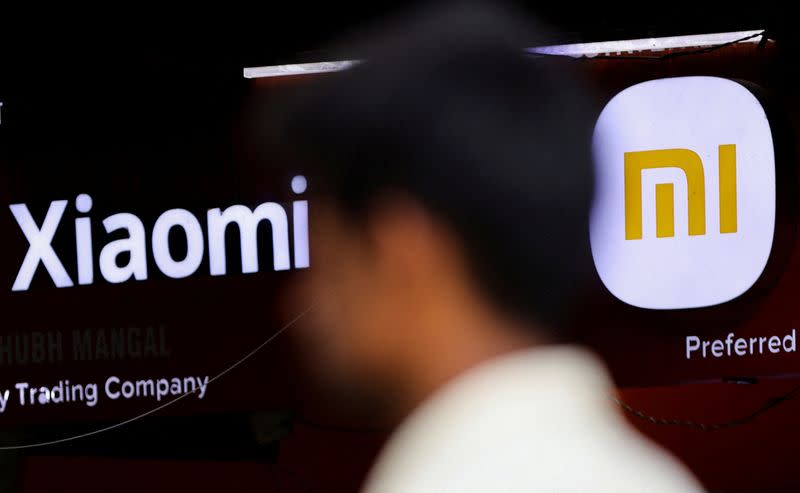Heavy scrutiny of Chinese companies by the Indian government has made smartphone component suppliers wary about setting up operations in South Asian nation, Xiaomi has told the Modi government.
The Chinese consumer electronics maker has the biggest share of India’s smartphone market – 18%, but it has suggested that New Delhi should consider offering incentives to manufacturers and lowering import tariffs for certain smartphone components.
That proposal was suggested in a letter the company sent to officials on February 6 and confirmed by a source with knowledge of the matter.
ALSO SEE: Israel’s Tower Proposes $8bn Chip Plant in India – Express
Xiaomi assembles smartphones in India with mostly local components and the rest imported from China and elsewhere. The letter was Xiaomi’s response to a query from India’s information technology ministry asking how New Delhi can further develop the country’s component manufacturing sector.
Tensions simmer after border clash
India ramped up scrutiny of Chinese businesses after a 2020 border clash between the two countries killed at least 20 Indian soldiers and four from China, disrupting investment plans of big Chinese companies and drawing repeated protests from Beijing.
While Chinese companies operating in India are reticent to speak publicly about the scrutiny, Xiaomi’s letter shows that they continue to struggle in India, especially in the smartphone space where many critical components come from Chinese suppliers.
In the letter, Xiaomi India President Muralikrishnan B said India needed to work on “confidence building” measures to encourage component suppliers to setup operations locally.
“There are apprehensions among component suppliers regarding establishing operations in India, stemming from the challenges faced by companies in India, particularly from Chinese origin,” Muralikrishnan said, without naming any companies.
The letter said the concerns were related to compliance and visa issues that it didn’t elaborate on, and other factors. It said “the government should address these concerns and work to instil confidence among foreign component suppliers, encouraging them to set up manufacturing facilities in India.”
Xiaomi and the IT ministry did not respond to queries for further information and comment.
Xiaomi, Vivo accused of wrongdoing
Indian authorities last year accused Chinese smartphone company Vivo Communication Technology of breaching some visa rules and alleged it siphoned $13 billion in funds from India.
India has also frozen more than $600 million in Xiaomi assets for alleged illegal remittances to foreign entities by passing them off as royalty payments.
Both Chinese companies deny any wrongdoing.
Other than regulatory scrutiny of the likes of Xiaomi and Vivo, India has since 2020 also banned more than 300 Chinese apps, including ByteDance’s TikTok, and halted projects planned by Chinese automakers BYD and Great Wall Motor.
The source said many executives of Chinese electronics companies struggle to get visas to enter India, and their companies continue to face slow clearances for investments due to heavy scrutiny by New Delhi.
In the letter, Xiaomi’s Muralikrishnan also made a case for further lowering India’s import tariffs, just after New Delhi’s January 31 move to reduce import taxes on battery covers and phone camera lenses.
Xiaomi is also asking India to reduce import tariffs on sub-components used in batteries, USB cables and phone covers, according to the letter.
Reducing the import tariffs could “increase India’s manufacturing competitiveness … in terms of costs”, Xiaomi said in the letter, but getting component manufacturers to set up shop in India would require bigger incentives.
In January, India’s top industrial policy bureaucrat Rajesh Kumar Singh signalled that India could ease its heightened scrutiny of Chinese investments if the two countries’ border remains peaceful.
- Reuters with additional editing by Jim Pollard
ALSO SEE:
India to Discourage Foreign Trade Settlement in Chinese Yuan
India to ‘Urgently’ Ban China-Linked Betting and Loan Apps
India, US Partner on Chips, AI and Arms to Take on China
India’s TikTok Ban ‘Incredibly Important’: US FCC – TechCrunch
China’s India Dilemma: Ally Against US or Asian Foe
Wang Yi Seeks Normal India Ties, Delhi says Ease Border Row First
Ban China From Social Media, India Expert Urges – The Register
India, China Hold Talks to Cool Deadly Border Tensions
























